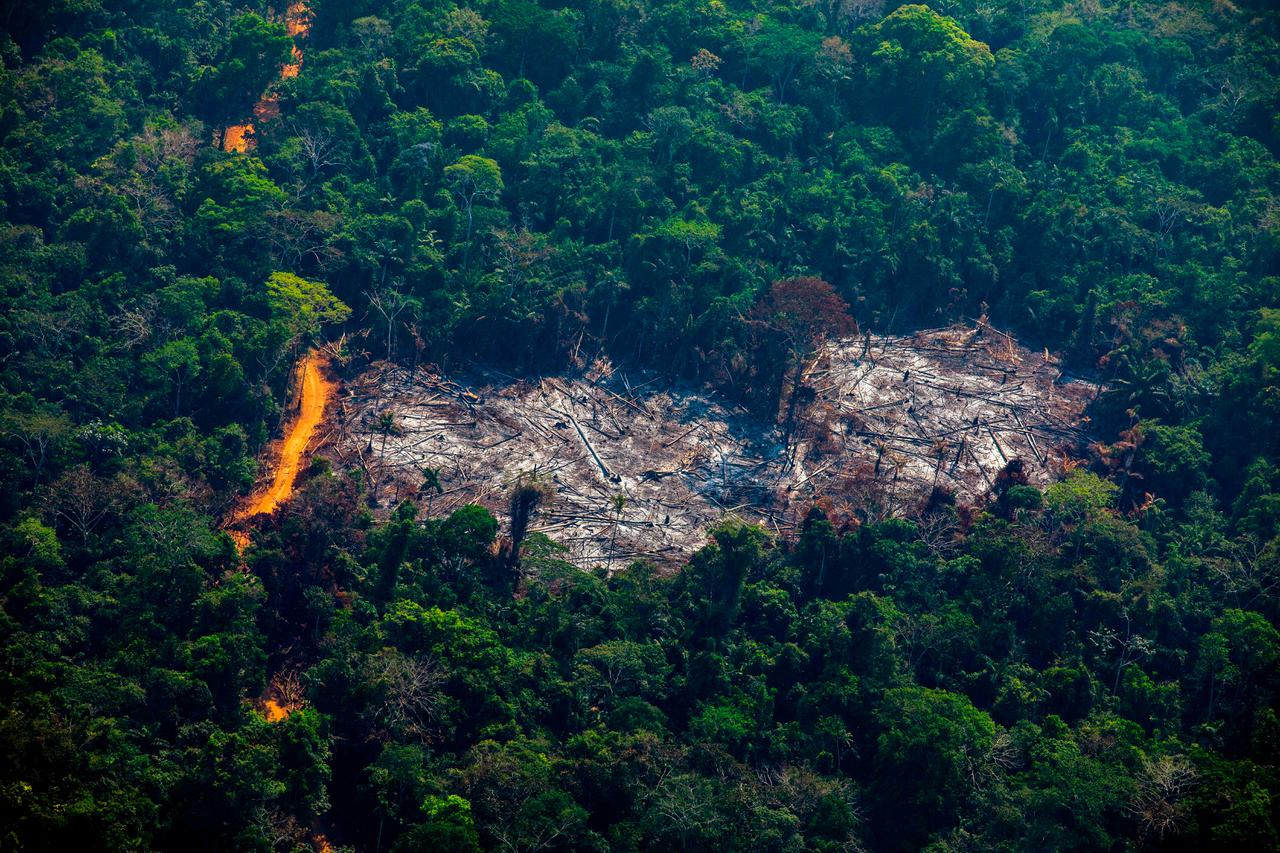
Amazon aflame: What we've learnt in a year reporting on Brazilian beef and the rainforest
The fires that have swept through the Amazon rainforest are a direct result of beef consumption in Europe and around the world, as documented by the Bureau in a series of investigations throughout this year.
Our food and environment team has spent the last year investigating the links between the Brazilian beef industry and the ongoing destruction of one of our most important carbon sinks.
As the COP25 global climate negotiations draw to a close in Madrid, our latest story has revealed Brazilian Amazon fires were three times more common in the meatpackers’ estimated operating areas than outside them.
It is the latest in a series of reports we have produced working with the Guardian and Repórter Brasil evidencing the toll of Brazil’s beef industry. In July we shared our findings that JBS, the world’s biggest meat producer, had broken its own “zero-deforestation” policy by buying cows from a supplier grazing cattle on land that had been forbidden for use as a punishment for earlier felling.
We also exclusively published research done on an unprecedented scale by the supply chain transparency initiative Trase, which suggested the Brazilian beef industry was responsible for up to 5,800 sq km of deforestation every year. The research linked the export supply chains of the three biggest beef exporters – JBS, Minerva and Marfrig – to up to 500 sq km of felling annually.
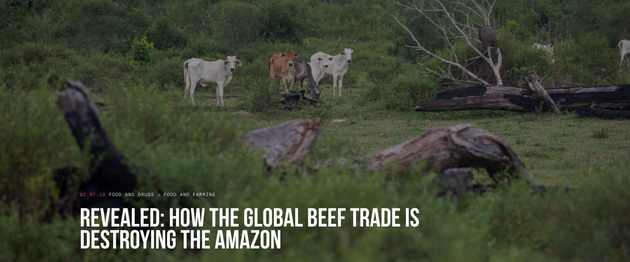
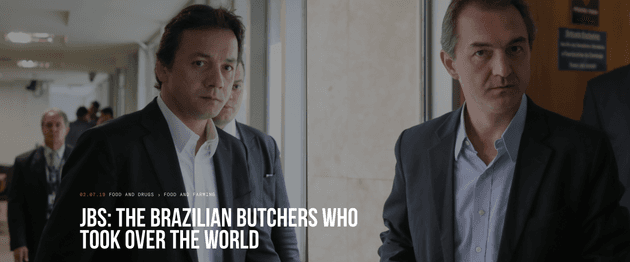
JBS said in response that 99.9% of its cattle purchases met its socio-environmental criteria and that it was working to implement “a new procedure to cover all links in the supply chain” and stop the use of “cattle from illegally deforested areas”.
In September, we showed how Marfrig, like JBS, had broken its own policy around deforestation. It had bought cattle from a supplier sanctioned by the government grazing cattle on illegally felled land.
Marfrig told us Brazilian government data did not show the ranch’s sanction at the time of the purchase and that it had blocked the supplier as soon as it became aware. Documentation we saw suggested the Brazilian government had announced the punishment two weeks before Marfrig made the purchase.
We also managed to track shipments of beef by JBS, Marfrig, and the other major Brazilian beef exporter Minerva to the UK and EU. Using shipping and trade data, we established the UK imported £1bn worth of beef from these three giants over five years – ending up in chains such as Sainsbury's, Aldi, Asda, Morrisons and Lidl – and the EU imported at least £2.5bn worth.
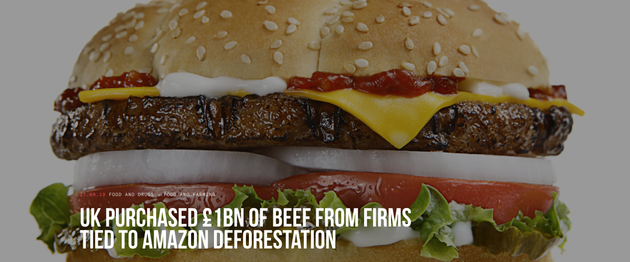
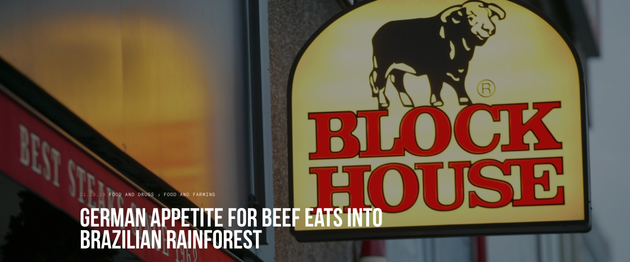
These findings made a front page splash in Germany, as the national publication Die Welt used our data analysis to show their country had imported €216m worth over the same period.
JBS, Marfrig and Minerva all say they have been able to eliminate deforestation from their supply chain but, as we’ve come to understand, by this they mean their direct suppliers.
In fact, many of the cattle they buy pass through several farms before reaching the final fattening ranch, and not one Brazilian beef company currently monitors these “indirect suppliers”.
The government does not publish the data in a format that would allow such monitoring, but this hasn’t stopped the companies from continuing to buy animals originating from indirect suppliers.
In fact, Marfrig admitted to us in November that such cattle account for more than half the cows it buys. Research by the University of Wisconsin and the National Wildlife Federation (NWF) suggests this is true across the industry.
In short, this loophole means the meatpackers simply cannot know whether the cattle they buy are coming from deforested areas. Yale University estimates cattle ranching is responsible for 80% of felling in every country with Amazon cover.
And just as a solution to the loophole may have been found, a new obstacle has arisen. The Wisconsin and NWF researchers, along with other groups, recently finished developing a tool collating the data that would allow indirect supplier monitoring. This would be free for use by the major meatpackers, but the Brazilian government has announced it will be taking down one of the key datasets, it says due to data protection concerns.
While solutions are delayed, trees continue to fall. Our data analysis published this week showed nearly two thirds of fires in the Brazilian Amazon in July, August and September this year took place in the estimated cattle sourcing areas of the beef industry, despite these areas accounting for less than half of the region.
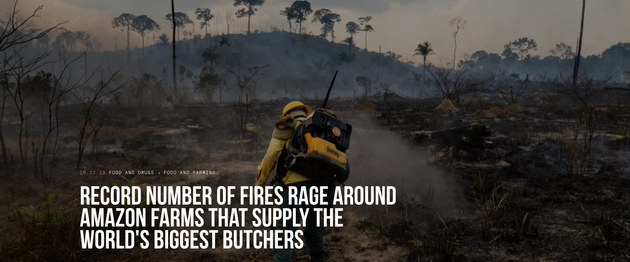
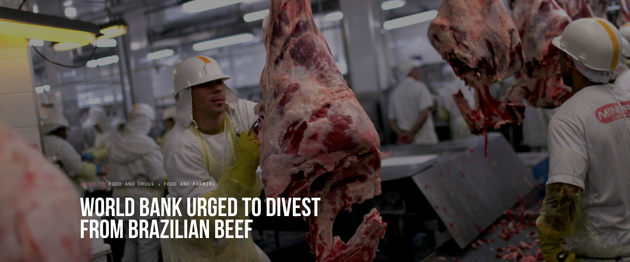
All companies say they are committed to preserving the Amazon. JBS and Marfrig said in response to our fires statistics that they block any farms found to be involved in deforestation, and the latter said it was monitoring fires in its supply chain. Minerva said there was no evidence blazes were started on their suppliers’ ranches.
Experts say the fires were a direct result of deforestation, as trees cut down earlier in the year were burned off. Felling increased by 30% in the year to July, according to Brazilian government data.
Two UN experts told us the World Bank’s investment arm, the IFC, should reconsider its significant stake in Minerva in light of heightened awareness of the climate crisis. The IFC admitted Minerva cannot be sure its cattle are coming from deforestation-free areas because of the indirect supplier monitoring problem.
As the Brazilian government prepares to sell more than $2bn-worth of shares in JBS and Marfrig, an international group of NGOs including Global Witness and Greenpeace Brasil has now written an open letter – citing our research among others – to highlight the deforestation risks to potential investors.
Header image: A forest fire in Pará state, Brazil. Credit: Getty Images




